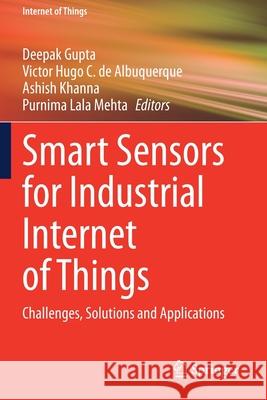Smart Sensors for Industrial Internet of Things: Challenges, Solutions and Applications » książka



Smart Sensors for Industrial Internet of Things: Challenges, Solutions and Applications
ISBN-13: 9783030526269 / Angielski / Miękka / 2022 / 324 str.
Smart Sensors for Industrial Internet of Things: Challenges, Solutions and Applications
ISBN-13: 9783030526269 / Angielski / Miękka / 2022 / 324 str.
(netto: 690,08 VAT: 5%)
Najniższa cena z 30 dni: 693,97
ok. 22 dni roboczych.
Darmowa dostawa!
Introduction.- Section 1: Industrial Internet of things (IIoT).- Introduction to Industrial Internet of things (IIoT).- IIoT Architecture.- IIoT Key Technologies .- IIoT Use Cases.- Section 2: Smart Sensors for IIoT.- How Smart? – Role of Smart Sensors in IIoT.- Challenges to IIoT Smart Sensor Manufacturing and Deployment.- Section 3: IIoT Smart.- Sensors and Business Aspects.- Smart Sensor IIoT Businesses.- Predictive Analytics with Sensor Data.- Efficient Business Predictions .- Section 4: IIoT Smart Sensors Potential and Applications.- Potential and Importance of Smart Sensors for IIoT.- Real-World Applications of Smart Sensor IIoT.- Section 5: IIoT Smart Sensor Case Studies.- Connected Vehicles – Intelligent Transport Systems.- Internet of Drones.- Precision Farming/Agriculture.- Healthcare.- Conclusion.
1997-2026 DolnySlask.com Agencja Internetowa
KrainaKsiazek.PL - Księgarnia Internetowa









